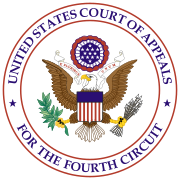| Dow v. United States | |
|---|---|
 | |
| Court | United States Court of Appeals for the Fourth Circuit |
| Decided | Sept. 15 1915 |
| Citation | 226 F. 145 |
| Case history | |
| Prior history | Ex Parte Dow (1914), In re Dow (1914) |
| Holding | |
| Court held that residents originating from Syria were considered racially "white", and therefore eligible to become naturalized US citizens | |
| Court membership | |
| Judge sitting | Charles Albert Woods |
Dow v. United States, 226 F. 145 (4th Cir., 1915), is a United States Court of Appeals, Fourth Circuit, case in which a Syrian immigrant, George Dow, appealed two lower court decisions denying his application for naturalization as a United States citizen.[1]: 257 Following the lower court decisions in Ex Parte Dow (1914) and In re Dow (1914), Dow v. United States resulted in the Circuit Court's affirmation of the petitioner's right to naturalize based, in the words of Circuit Judge Charles Albert Woods, on "the generally received opinion . . . that the inhabitants of a portion of Asia, including Syria, [are] to be classed as white persons".[2]: 7
George Dow's gauntlet through the American legal system, and the language with which his petition for citizenship was dealt, illustrate the degree to which legal bodies struggled to classify new groups of immigrants in a racial schema which would ultimately determine these immigrants' right to become American citizens.
- ^ Naff, Alixa (1985). Becoming American: the Early Arab Immigrant Experience. Carbondale: Southern Illinois UP. ISBN 0-8093-1206-9.
- ^ Dow v. United States. Circuit Court of Appeals, Fourth Circuit. 14 Sept. 1915. Nexis Lexis Academic. Web. 28 Sept. 2011.